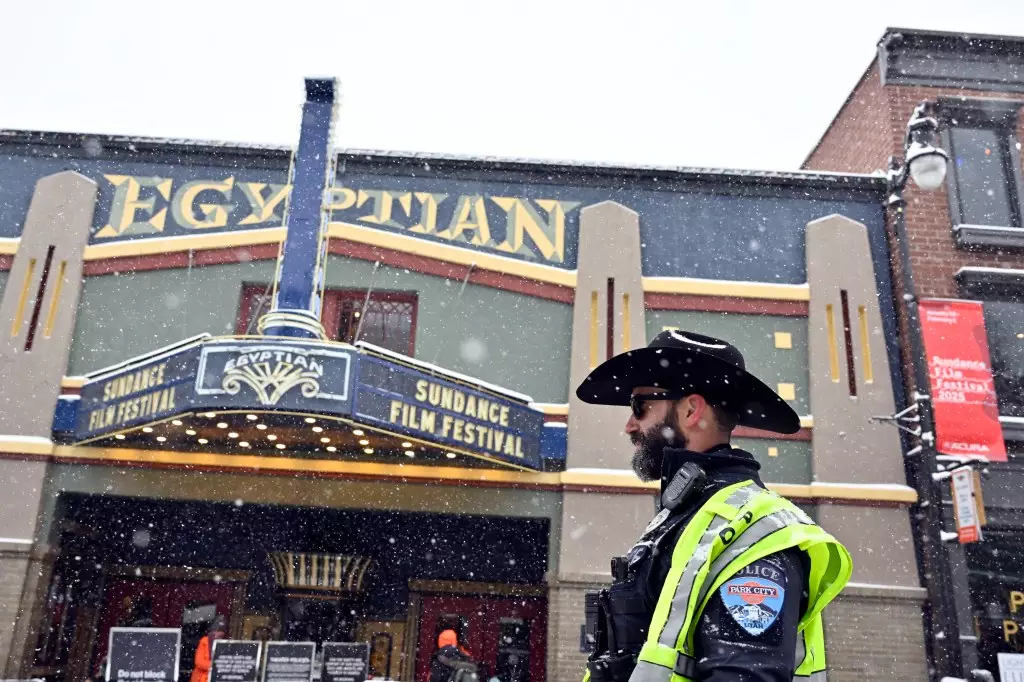The countdown is underway in Utah, with just two days remaining before Governor Spencer Cox makes the pivotal decision to sign or veto House Bill 77, legislation that seeks to prohibit the display of the Pride Flag on government properties. Far beyond a mere cultural battle, this bill may unravel the very fabric of progressive values in a state striving to keep its artistic jewel—the Sundance Film Festival—at home. Park City Mayor Nann Worel has voiced strong concerns, suggesting that much more is at stake than the colorful emblem of pride; the very future of Utah’s relationship with the preeminent film festival hangs in the balance.
The Festival’s Significance and Economic Impact
Sundance is not just a film festival; it is an economic juggernaut for Utah. The festival generates significant revenue, and with the latest estimates placing its economic contribution at around $34 million, the stakes are incredibly high. As Mayor Worel emphasized, efforts have been underway to reassess and innovate the festival’s future within the state, turning Park City into a vibrant hub while Salt Lake City becomes an affordable satellite location. However, these dreams teeter on the brink of cancellation as the legislative session churns through bills that threaten inclusivity in the state.
The irony is stark: while billions flow into Utah’s economy from tourism and the festival industry, legislation like HB 77 reveals troubling undercurrents of intolerance that stand opposed to the very essence of the arts, which thrive on diversity and expression.
The Pushback Against Intolerance
As the bill gathered momentum through Utah’s Republican-dominated legislature, vocal opposition sprang up from various corners of society. Recent remarks from local leaders indicate that many view the legislation as fundamentally incompatible with the values that Sundance represents. The festival is founded on principles intended to create a “vibrant, inviting, and inclusive” space—core values that HB 77 threatens to undermine. This dissonance led to stark realities surfacing: the festival’s potential relocation looms large amid an attractive offer from Boulder, Colorado, and an emerging competitor from Cincinnati, Ohio.
Local officials, including Salt Lake City’s Mayor Erin Mendenhall, explicitly caution against this direction, saying that the consequences of such measures are not merely political—they’re existential for the cultural landscape. Just as the stakes are high economically, they are equally critical for social acceptance and the advancement of human rights.
Judicial and Political Repercussions
The juxtaposition of Governor Cox’s apparent support for the arts against the reality of this legislative backdrop makes for a complex political landscape. The Governor finds himself ensnared in a web of conflicting priorities. On one hand, he has pledged support to keep Sundance in Utah; on the other, signing HB 77 would indisputably alienate the very filmmakers and festivalgoers he seeks to attract.
The impending deadline of March 27 creates a palpable tension: will he align himself with progressive values to protect the festival, or will he capitulate to the conservative voices within his party? Either choice has significant ramifications, but a choice for intolerance could result in a financial drain—a consumer revolt against a state perceived as hostile to inclusivity.
A Festival at a Crossroads
The inevitable displacement of the Sundance Film Festival would be a stark warning sign, signaling that Utah’s shifting political tides could stamp out the progressive culture that has, for decades, allowed the arts to flourish. If the bill passes, repercussions may extend far beyond mere relocation; they could lead to a chilling effect on creativity, arts funding, and local support networks that encourage diversity.
As Mayor Worel aptly put it, there is a palpable feeling of despair among those committed to keeping Sundance in Utah. The precarious balancing act between tradition and progress demonstrates how fragile cultural ecosystems can be. While she maintains hope for the state’s artistic future, the passage of anti-LGBTQ+ legislation signals an erosion of the atmosphere that artists, creators, and innovators most need to thrive.
A Call for Resistance
The choices facing Utah’s leadership are not merely about legislation; they are ultimately about the kind of society they wish to build. As the state acknowledges its identity through events like the Sundance Film Festival, it must also reckon with the implications of its decisions on diversity, acceptance, and progress. Ultimately, if Utah hopes to retain its vibrant cultural offerings and the resulting economic benefits, the time has come for the voices of reason to unify against regressive measures like House Bill 77. With the spotlight on them, mayors, cultural leaders, and citizens must rally together in defense of inclusivity—not merely for themselves but to ensure that Utah does not regress into the oppressive shadows of the past.


Leave a Reply